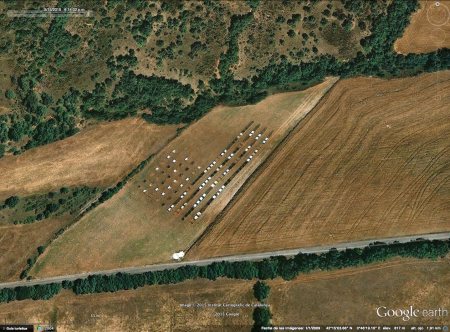
Objective:
This study is aimed at accelerating the onset of truffle production by avoiding weed competition around the recently planted Tuber melanosporum inoculated seedlings. By doing so reducing the labor costs, avoiding compacting the soil or loosing the organic certification of the truffle orchard.
Context:
Seedlings inoculated with Tuber melanosporum face strong competition from weeds after being planted in the field. This reduces their growth and also delays truffle fruiting. Weed competition can be reduced by mechanical or chemical means. Mechanical means are problematic because heavy machinery compacts the soil which is undesirable for the growth of the fungus, and manual work is very time consuming and, therefore, expensive. Application of herbicides works well but blocks the access of the truffles to organic marketing circuits, common in gourmet food products.
Contacts:
Carlos Colinas, carlos.colinas@udl.cat
Christine Fischer, christine.fischer@ctfc.es
Daniel Oliach, daniel.oliach@ctfc.es
José Antonio Bonet, jantonio.bonet@udl.cat
Further information:
Olivera A, Fischer CR, Bonet JA, Martínez de Aragón J, Oliach D, Colinas C (2011) Weed management and irrigation are key treatments in emerging black truffle (Tuber melanosporum) cultivation. New For. doi: 10.1007/s11056-011-9249-9